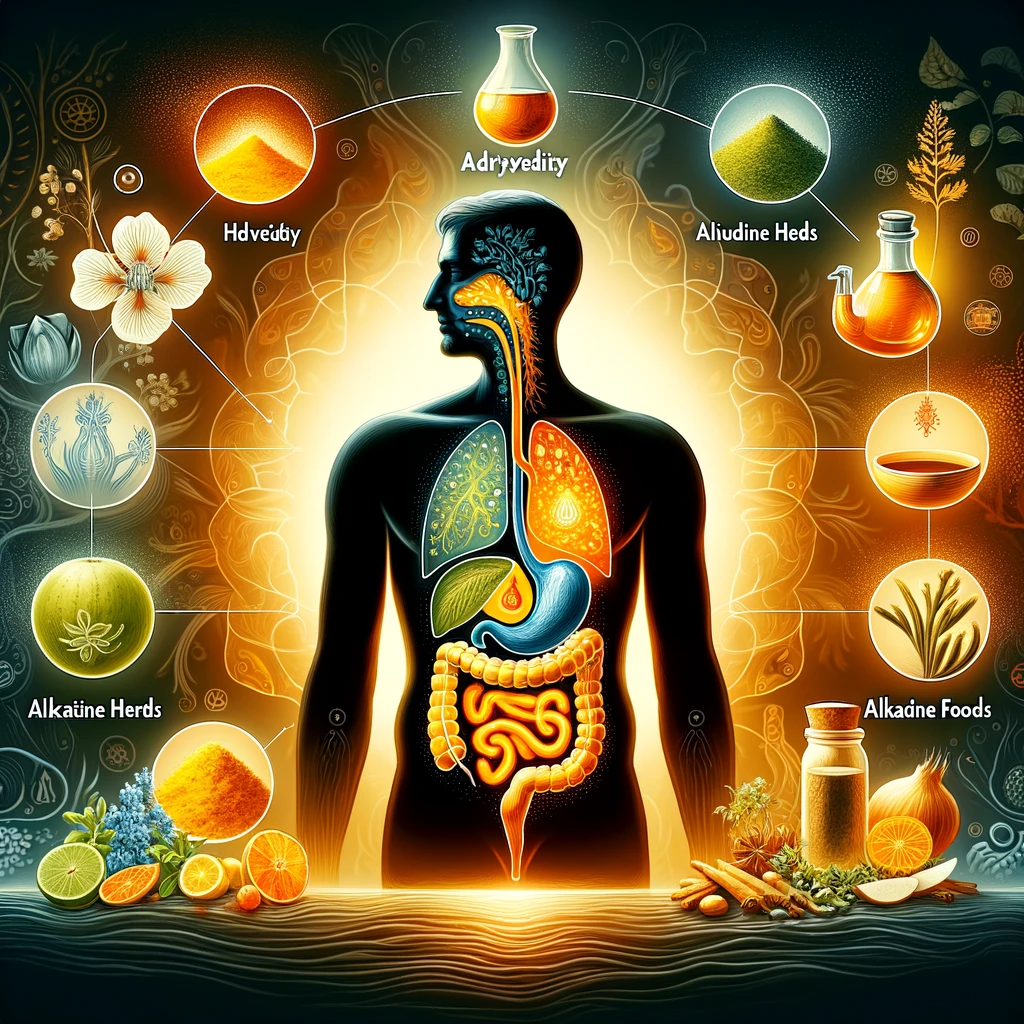Acidity, a common ailment affecting many, is viewed in Ayurveda as an imbalance primarily of the Pitta dosha. In this blog we will explore the different types of acidity in Ayurveda and holistic ways to manage them.
Ayurvedic Perspective on Acidity:
In Ayurveda, acidity is not just a symptom but a signal of imbalanced Pitta dosha, which represents fire element in the body. Even though Pitta (and for that matter Kapha dosha as well) cannot function with the assistance of another dosha, Vata, the air element in the body. The water element in the body, Kapha dosha, can also impact the development of acidity. Hence, the combination of Pitta and Kapha with the assistance of Vata dosha, in a certain way, manifests in acidity with various forms, depending on the individual's constitution and lifestyle.
Types of Acidity in Ayurveda:
- Pitta-Type Acidity: Characterized by burning sensations, heartburn, and hot flushes. It's often caused by spicy, hot, and fried foods, excessive stress, and hot climate. Sometimes sour taste is experienced and sometimes the mouth tastes bitter or pungent in this type of acidity.
- Vata-Type Acidity: Linked with dryness and gas formation, resulting from irregular eating habits, excessive intake of cold and dry foods, and stress.
- Kapha-Type Acidity: Less common, this type involves nausea and a sense of heaviness, often due to overeating, especially of sweet and oily foods.
Diet for Balancing Pitta:
A Pitta-pacifying diet is key in managing acidity. This includes cooling and alkaline foods like cucumbers, melons, kokum (garcinia) and leafy greens, and avoiding spicy, acidic, and overly salty fried foods.
Ayurvedic Remedies for Acidity:
In acidity, if the mouth experiences a sour taste, herbs such as Bhumyamalaki (Phyllanthus niruri), Bhunimba (Chirayta) and Kalmegh are to be administered. If the mouth turns bitter then herbs like Amalaki (Indian gooseberry) and Yashtimadhu (licorice) are beneficial. In case of burning sensation in the throat, chest or stomach, herbs like Sariva or Anantamula (Indian sarsaparilla) and Ushira (Khus) are beneficial. Drinking coconut water and aloe vera juice can also soothe the stomach lining and reduce acidity. Consuming kokum sharbat is one of the effective and highly recommended drink remedies for acidity.
Lifestyle Adjustments:
Regular meal times, mindful eating, and stress management through yoga and meditation are crucial in maintaining Pitta and Vata balance and preventing acidity. Stress is considered as one of the important reasons for development of acidity in contemporary times. Acquiring for the de-stressing activities keep anxiety in control and hence results in reducing the acidity in the body.









